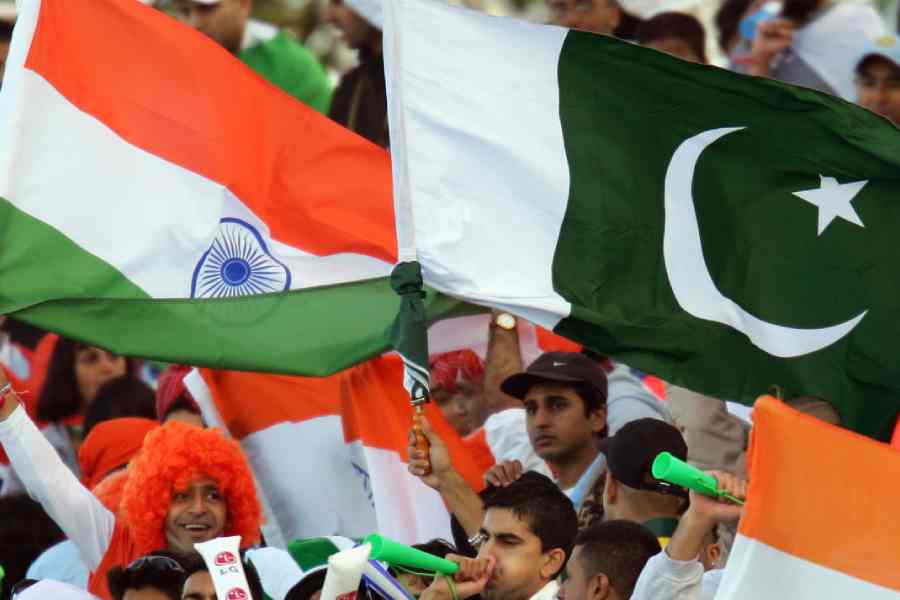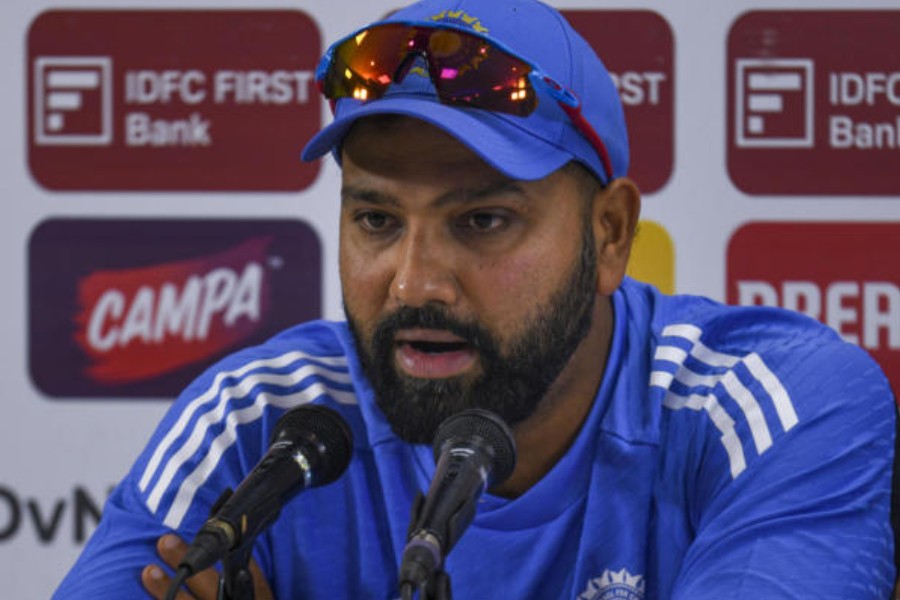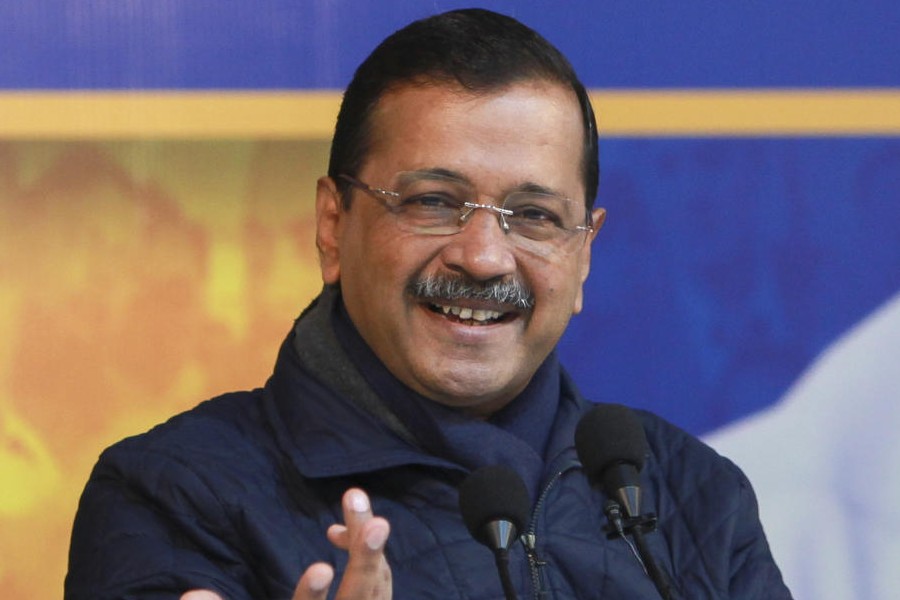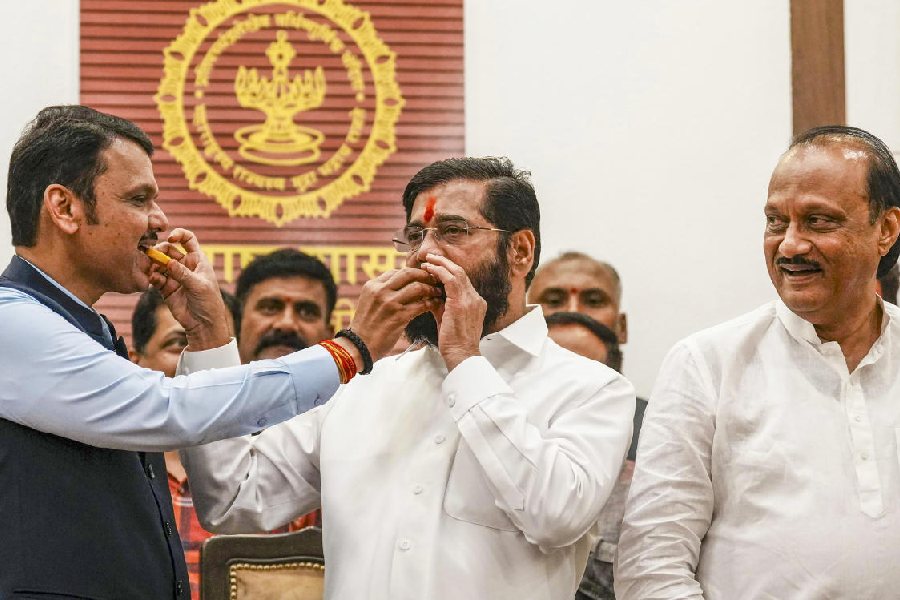I am a proud Indian with a love for Pakistan, a country I have never visited but one that bonds with me through the ties of history, literature, music, and sport. This love doesn’t extend to the political, administrative, and military apparatus of that country. I am aware of the fraught history that this country shares with mine, one dirtied by wars, break up of nation-states, sponsorship of cross-border terrorism, prickly keywords like PoK, Kandahar, ISI, Kargil, Pulwama, Balakot, Jaish-e-Mohammed and Hizbul Mujahideen, among others, and acrimonious name-calling over everything, from cricket to Kashmir. I am also familiar with the various labels scholars foist upon it, including ‘rogue State’ and ‘failed State’. And, yet, my attachment to Pakistan persists because I think that beyond how the State operates, there are enough ingredients that the people of the two countries can bond over.
In general, a fine veil of anti-Pakistan rancour hangs lightly over us all the while. Sometimes this can be whipped up, at least temporarily, into a frenzy that’s powerful enough to turn electoral fortunes, as we have seen not long ago. However, within the folds of this veil lie moments and processes that foreground bonds, affections, and shared traditions. And many instances can be cited to show that the ordinary people of both countries are not easily susceptible to the State-sponsored narratives of bilateral rivalry and discord, notwithstanding recent efforts to harden, even reify, that narrative.
For much of Pakistan’s history, its citizens haven’t always shared its foundational vision or kowtowed to the State. When Pakistan’s poet extraordinaire, Faiz Ahmed Faiz, wrote his plaintive poem, “Subh-e-Azadi” (“Freedom’s Dawn”), on Partition and the birth of Pakistan, his sense of disillusionment came across palpably in the poignant opening lines: “Ye dagh dagh ujala, ye shab-gazida seher,/ Woh intizar tha jis-ka, ye woh seher to nahin (“This leprous daybreak, dawn night’s fangs have mangled/ This is not that long-looked-for break of day”). The Lahore Coffee House that Faiz frequented was a favourite haunt of freethinkers and Leftists for many decades, as lovingly recalled in a memoir by Pakistan’s pioneering critical historian, K.K. Aziz. Many students of history in India are familiar with the critiques of the ‘Hindutva turn’ in NCERT textbooks but few know that it was K.K. Aziz who had the courage to confront Zia-ul-Haq’s unhinged Islamisation and military dictatorship head on and write The Murder of History: A Critique of History Textbooks Used in Pakistan — a book that ruthlessly exposed the many misinterpretations and misleading statements in Pakistan’s school textbooks — in 1985. It inspired several Pakistani historians to then follow suit, openly lambasting the spurious and often toxic history that was fed to school students. Yet, these bravehearts didn’t get the credit points their colleagues from the neighbouring behemoth stacked up.
Music and sport are of course my favourite areas to give examples from because they connect with my personal histories. I woke up one memorable morning in the late-1960s to see my father tuning in to Dhaka Radio to catch the late Pakistani ghazal maestro, Mehdi Hassan, singing Kazi Nazrul Islam’s “Bagichay bulbuli tui” (“O Nightingale”) in an incredibly melodious voice. When Iqbal Bano, clad in a black saree in defiance of dress protocols, rousingly sang Faiz’s “Hum dekhenge” (“We will witness”) before a Lahore crowd of 50,000 to protest against Zia-ul-Haq’s authoritarian rule in 1986, she created a rumble whose reverberations were heard in the anti-CAA protests by the students of IIT-Kanpur, Jamia Millia, and JNU and, most recently, in the massive public demonstrations in Pakistan and elsewhere against the deplorable incarceration of Imran Khan and his followers since August 2023. And I have not listened to a more soul-stirring Radha-Krishna bhajan than the one by the Pakistani qawwali-singing brothers, Farid Ayaz and Abu Muhammad, hauntingly bringing out the agony of a lovelorn Radha in “Kanhaiya, yaad hai kuchh bhi hamaari” (“O Krishna, do you remember me at all?”) When an 85-year-old Farida Khanum, Pakistan’s ‘Queen of Ghazal’, broke down at a literary festival in Calcutta in 2014 while recalling her childhood in the city and singing her iconic “Aaj jane ki zid na karo” (“Don’t insist on leaving tonight”), her emotions became emblematic of the love, loss, and longing that connect the citizens of the two countries, never mind the hawks, warmongers, and bhakts.
And now to cricket, a bond deeper than the deepest of States. Growing up, my first taste of a cricket book was Ramaniya Cricket (Cricket, the Wonderful Game) by the literary scholar, Sankari Prasad Basu, which had a longish, slow-burn description of a dreary, drawn India-Pakistan Test match in the 1952 series in which both teams scored at an average of 2.3 runs per over in an Eden Gardens filled to the brim with a crowd that, over five excruciatingly slow, December days, wallowed in a state of benign somnolence. Nobody wanted to blockade the stadium or dig up the pitch, and no flashmobs of protests materialised. This was only five years after Partition, at a time when the cross-border migrations of displaced peoples were still in full swing, and the memory of the East Pakistan riots of 1949-50 was quite recent. Why didn’t those horrors transmute into a seething anger among the crowds in a city that itself had gone through a horrendous communal conflagration only six years earlier?
Snapshots of camaraderie keep seeping through the combative history of Indo-Pak cricketing relations — the tall and pencil-thin pacer, Sikander Bakht, obsessively catching three Big B films a day during the 1979-80 tour to India; the Pakistan captain, Asif Iqbal, receiving a standing ovation from an Eden Gardens crowd in his farewell Test; Sarfraz Nawaz and Abdul Qadir — the banes of many Indian batters at their peak — dancing away in the Indian dressing room at Lord’s to celebrate India’s victory in the 1983 World Cup; Atal Bihari Vajpayee doing a Track 2 diplomatic coup by urging the Indian team on the Pakistan tour of 2003-4 to “Jeet lo dil”; purveyors of wondrous kebabs and biryani in Lahore’s bylanes refusing to take money from a surreptitiously visiting Sourav Ganguly; or Pakistan team members visiting Virender Sehwag’s home to offer condolences after his father’s passing in 2007.
The uncertainty over whether the Indian cricket team would travel to Pakistan for the Champions Trophy in 2025 has now been put to rest with the Board of Control for Cricket in India belting out a loud and reverberating ‘No’. This flies in the face of exhortations by people like Wasim Akram for Indian players to travel there for the sake of cricket and adoring Pakistan cricket fans. The Sri Lankan cricket team, despite being targeted by a terrorist attack during their 2009 tour of Pakistan, were the first team to travel back for Test matches in 2019 after a 10-year hiatus on Test cricket there. If Sri Lanka can do this, what restrains India?
We need to look only at the rousing story of the friendship and camaraderie between the Pakistani and Indian javelin throwers, Arshad Nadeem and Neeraj Chopra, who so easily rise above a legendary rivalry to enjoy each other’s close friendship and publicly wish each other success. When both moms of these champion athletes, Razia Parveen and Saroj Devi, said that their sons’ rivals across the border were as much their sons as their blood children, they handed out nothing short of a body slam to hawkish politicians and diplomats on both sides of the border and showed the possibilities of how people-to-people connections and bonds can still triumph over the polarising rhetoric constantly spun along the corridors of power. So why can’t an aspiring ‘Viswaguru’ take up the gauntlet thrown by the unassuming, unaffected duo of Razia Parveen and Saroj Devi?
Jayanta Sengupta is Director, Alipore Museum; jsengupt@gmail.com











